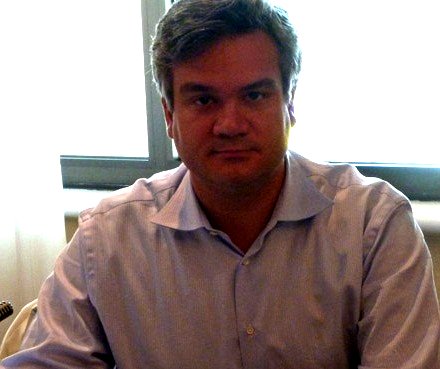
Alexander Cooley is professor of political science at Barnard College, Columbia University in New York.
There is a deficit of knowledge about what is going on in Abkhazia, says Alexander Cooley, professor of political science at Barnard College, Columbia University in New York.
Cooley sat down with DF Watch and told us about a researcher doing public opinion surveys in Abkhazia who was frowned upon by the Georgian government..
How do you see the dynamic of the situation in Georgia politically generally?The general view of Georgia is that we’ve now reached the second term of this government that presented itself as a revolutionary government and now the question of how it either transitions or how it gives up power becomes the central question. We can no longer talk that this is a young government. It’s not. Like in 2003, 2004. We of course have the presidential term limits. And I think there is couple of distinct trends. One is that the government has been very good at the modernization project of Georgia. And what do I mean by this? Presenting Georgia as a modern dynamic society, changing its image abroad, aligning it with the west, incorporating this language of values of the west and so on, very good at that; improving its investment image abroad and so forth.
It’s also been extremely effective, and is viewed as a role model on the petty corruption issue and reforming the police and so forth. Having said all that I think we’ve now reached, in parts, the limits of the modernization program, and you’ve seen the tension between modernization and democratization that the steps on the democratization side have stopped, and that you see clearly now a government that’s convinced it has the best interest of the Georgian people on mind, the state, but is increasingly resorting to undemocratic tactics and procedures to try and extend its time in power and to paint its political opponents in an unfavorable light. So I think it’s very important that we disentangle the issues of this government as a modernizer, versus the government as democratizer. I think this government has modernizing credentials, but it has stalled on the democracy front. And even though I think it wants to conflate the two, we need to keep these separate.
You mentioned that democratization process was stopped. When exactly did you notice this turning point, which year, which event indicated this?I think most people would point to the events of 2007 and the crackdown as crystallizing the stall. Now I think when you look constitutionally, there were moments before, like the failure to enact the constitutional reforms, that were meant to come into force shortly after the rose revolution. I think there were also some strategic mistakes made by the US in response. For instance after this new government came to power we stopped viewing Georgia as a country in transition, and viewed it as a fully-fledged democracy. So for instance we withdrew media founding for promoting the media, and then in 2005-2006 you saw this government assert its control over the media. So I think that was a mistake on our part. So I think there were some sides from 2005 to 2006, but I think 2007 is when in terms of Georgian image more broadly you saw real chinks in this democracy image.
We have had two interviews with Lincoln Mitchell, and he mentioned that for several years, the USA was somewhat suspicious towards the democratic opposition, but what is the situation now?I think it has evolved, I think it has improved. The thing we have to realize about the US, especially when it looks at this part of the world, it’s not very much the Cold War mentality. Even so-called experts, analysts, foreign policy people, senators or representatives, who are engaged with the region, still view the US policy as being one where they should strengthen the sovereignty and independence of the former soviet states. That’s a code word for saying we should lessen their dependency on Russia. We put it always in those term. That’s been the strategy in this part of the world for a long time. So I think, A) the government here has been very good at labeling all political opponents, all political concerns as playing into the Russians, whether they were or not, this is a different issue, and that in turn found a real audience in the US, this kind of binary choice. You know, you’re either with us or with Russia. It clarifies things, it clarifies the policy. You know, we wanna be with the good guys. Now, I think you’re seeing more nuance. I think you’re seeing some reflections about what happened in 2008. You see that question of the war, its origins is not is as not as clear cut as it was first portrayed to be. I think actually Vladimir Putin has been incredibly important in this and I’ll say why. As a negative example, because doing what he did, this idea that not only did he make the transition to Prime Minister, but he had it all planned out beforehand. And then to come back as president, this strikes us as being just wrong, from a democratic process. So that now I think any such plans here, to sort of engineer a primeministership or changing duties is going to be looked upon in the states in a more negative manner, because of what happened in Russia. Perhaps that’s an unexpected Russian example, but I think that’s an issue too. Then a third factor is I think you see more openness now in terms of the media environment and lobbying environment in the US, because Georgian Dream now is making its positions felt in certain parts of Washington, whereas before, the Georgian opposition really had no representation in this part. So I think this convergence of factors puts us in a different position then we were, I would say, three or four years ago.
Very interesting point about Putin precedent, him becoming Prime Minister…Yes, it’s harder to criticize this in Russia, than accept the reasons for it somewhere else.
Many people here expect the same scenario in Georgia too – Saakashvili becomes Prime Minister, because the new constitution gives all powers to the Prime Minister from 2013. What will be the response from Washington?I’m not sure what Washington can do to respond, to tell you the truth. I think there are messages that have been made in private and delivered that we expect an orderly and constitutional transition of authority, I think there have been private messages delivered trying to persuade president Saakashvili to think about your legacy and your image here, your place in history, if you were to voluntarily cede power. But the reality is that Georgia is going to continue to remain – for many a friend, for many an ally – regardless of whether this happens or not. One thing that I would like to see is much more public call about this issue like going on the record, talking about expectations about what we consider to be democratic progress and democratic development in Georgia. But in reality I don’t think that if this is engineered and this happens after-the-fact, what can the US do? I don’t think it can do too much, to tell you the truth.
Let’s turn to the Chicago Summit. It was seen as very important here. The government had been outlining the progress, while others considered no steps were taken forward. What are your views?I had the opposite reaction in terms of the message in Georgia. I saw this as a very strained indicator of Georgia’s NATO aspirations and importance. I think the Georgian government tried to play up that somehow there was a meaningful progress on the NATO issue, because it feels like it has to demonstrate progress, because it all the time has to prove that its strategy is working. In reality Georgian membership in NATO is a very low priority at the moment for the member countries. They are very much concern about one issue only – that’s Afghanistan getting out of Afghanistan. Everything else is of secondary importance.
This fall we have a parliamentary election which is seen as very important for many people here. What do you think, does there exist any red line, the crossing of which would cost Saakashvili and Georgian authorities their image as pro-western and democratic?It’s hard to think in hypotheticals, so I’d rather not come up with imaginary scenarios. There is an international expectation that the elections should be reasonibly fair, that the process should be transparent, that all candidates who want to run, should be allowed to run, that there shouldn’t be obviously the problem of administrative resources, but that this use of the media power and media control, that sort of block certain oppositional channels from cable packages, and so forth, this should also be denounced as unfair. I think ambassador Bass commented on this issue. So I don’t think there is any one red line. I think there should be an expectation that this is a mature government now, they certainly know about rules and institutions, that the run up to the election should be as open and as transparent, conforming to international norms as the conduct of the election itself.
But what if it doesn’t, what if elections are still unfair, despite all those criticism and recommendations?I think you’ll see a lot of international criticism. To what ends, I don’t know. I would be speculating, so I don’t want to speculate scenarios, but I think, one thing, and I know Lincoln agrees with me on this, elections always seem to be tests of Georgia’s democratic status. And it keeps receding for the tests. It’s a sort of exam that you keep taking and taking and taking until eventually you get it right at some point. But the image of this government if it somehow interferes will be diminished. So I think this is why things now are in a different place than they were four or five years ago. Now we are at the end of a second cycle, and that’s a quite pivotal point in terms of the perception of governments.
You published an opinion piece together with Lincoln Mitchell in the New York Times last year about the Abkhazian elections. You touched several important points, including the Georgian authority and how they treat these breakaway regions. How do you view Georgian policy towards those regions?I think that the policy is one of isolation, and one of wanting to speak on their behalf, and I think it’s been very counterproductive. I fear that Abkhazia is already lost now to Russia, because of the policy, that there was an opening perhaps right after the war. This is one of things we wanted to do:if there is obvious distrust between the Abkhaz government and this government, and if there is genuine concern in Abkhazia about being observed by Russia, which there is, you must offer a third way. You must offer some other set of processes, institutions, areas, where you can facilitate some dialogues and contacts, and this is sort of the regional third way, this is what we advocate, engagement. No recognition, but international engagement, and also it’s becoming the basis of EU policy, although in the implementation phase it hasn’t gone that way. Because given just a stark binary choice between Georgia and Russia, you see the turn to Russia. And not everyone’s necessarily happy about it, there are concerns. Again, some of the Abkhaz say, what for? We are autonomous or de facto independent, but not formally recognized. Now we’re formally recognized but we’re not independent. Now we’re formally recognized, but we’re not independent. So there is a tension between the legal recognition and the material consequences.
I think the other thing here is that the central government here is not given a set of matrix or indicators or standards through which we would be able to judge as external academics or analysts, the success of their strategy. So, how do we know, when we hear statements from senior officials that the strategy is working? Working to do what? What should we look at? Should we look at the number of grey passports that were adopted? Should we look at the number of hospital visits by Abkhaz here in Georgia? What should we look at, just tell us, otherwise this just your word. The final part that I have found very troubling is that it is clear that there is a deficit of knowledge about what is going on in Abkhazia. So this is why we have researchers committed to make public opinion surveys in Abkhazia trying to get a sense of what are the issues, what are the political attitudes. And this type of work is very frowned upon by central authorities here. One permanent researcher who entered via the north has now subsequently been banned here, but his is very important work about political attitudes in Abkhazia. So I think the point is we can’t keep talking about what the Abkhaz really think as if it’s just some hypothotical thing. We have the tools to find out what the Abkhaz do think, and I think the sooner that Tbilisi starts dealing with realities and political attitudes there and acknowledging them, that signals itself to the Abkhaz that you are taking these issues seriously. Now the question I said was, the Russians would never allow. How do you know? You need to start putting this process in place of real dialogue, of taking opinions seriously that if the Russians intervene, it changes Abkhaz perceptions of the political equation and the tolerance issue and so forth. So I actually think forcing Russia’s hand would be good outcome of this. Not a bad one.
Can you maybe predict about current situation in Karabakh [a disputed region claimed by both Azerbaijan and Armenia, and currently controlled by Armenia], because the situation is quite difficult there.Very difficult. I can’t predict and I’m not sure I want to. All I would say is that of course these recent skirmishes are part of a broader tension that you’ve seen over the last two three years. I think the question is, is there a destabilizing window at the moment, is every government that is now flushed with new wealth, that seems self-confident, whether it sees a window of a possible military operation in a way that it won’t be able to in five or ten year’s time. From a strategic point of view, that’s the question I would ask. But in terms of what will happen I don’t know.
Is there a possibility of involvement by some regional big powers, like Russia or Turkey, Iran?There’s a lot of talk about involvement of big powers, there’s lot talks about also the ramifications of the campaign against Iran, on the Karabakh issue. These are some second order consequences that need to be talked about in relation to the discussion of what a military operation on Iran will do. Not only for the Middle East but in the Caucasus itself. Would it set in emotion a set of other dynamics? I just can’t predict with any certainty, what would or wouldn’t happen. But yes, is there a relation there? Absolutely. Are relations between Iranians and Israelis very tense? Yes, very much so. I can’t say anything more without just speculating.
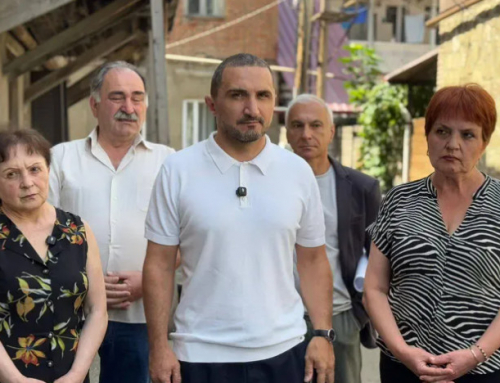
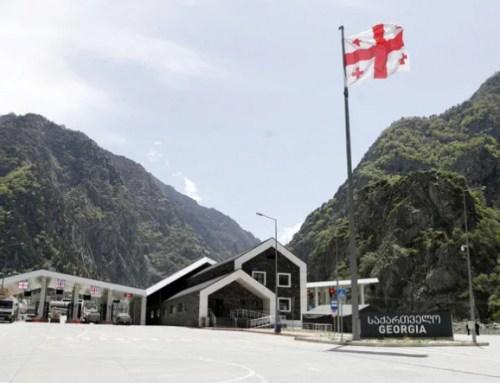
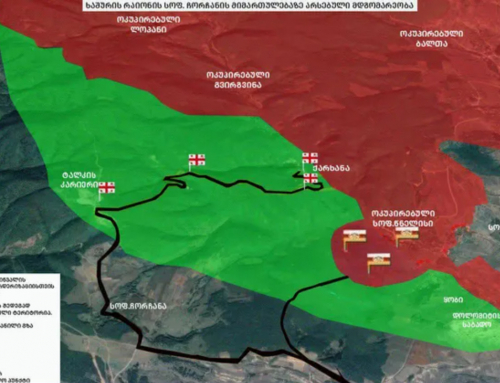
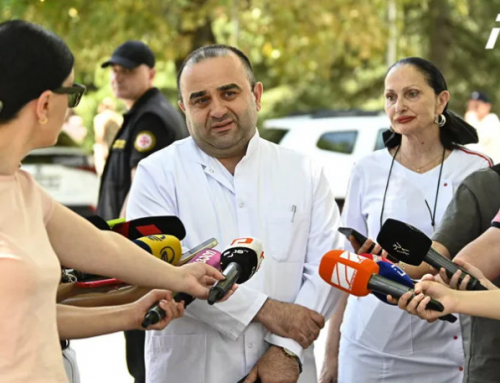
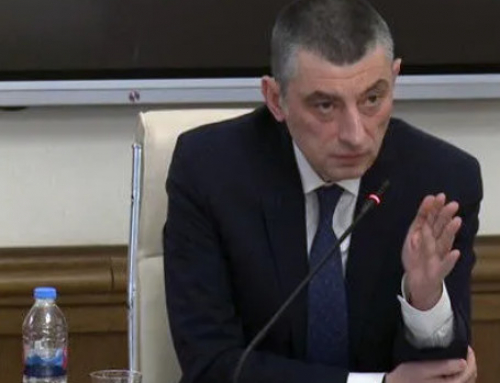
Leave A Comment
You must be logged in to post a comment.